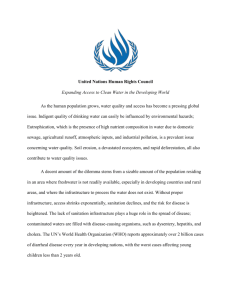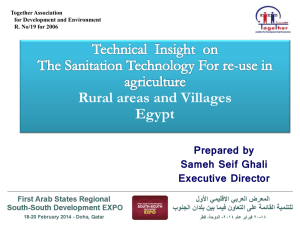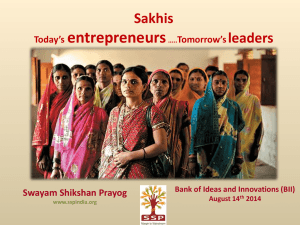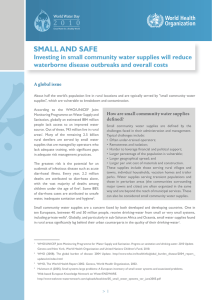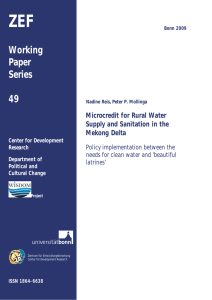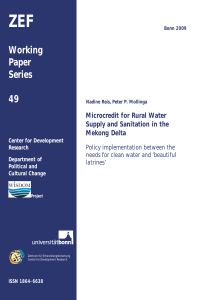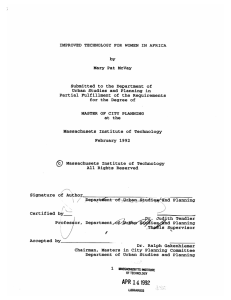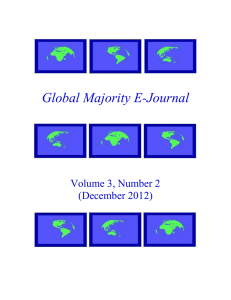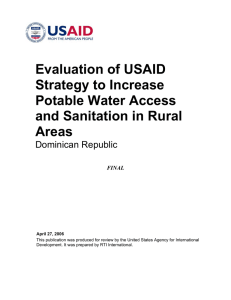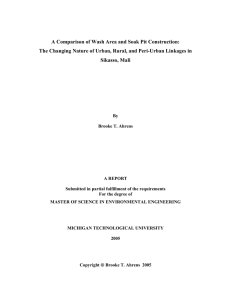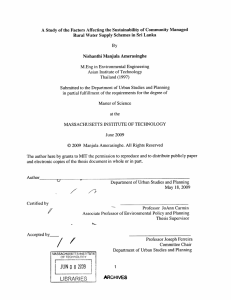Appropriate Technologies for Developing Countries ERE 396/596 Course Description
advertisement
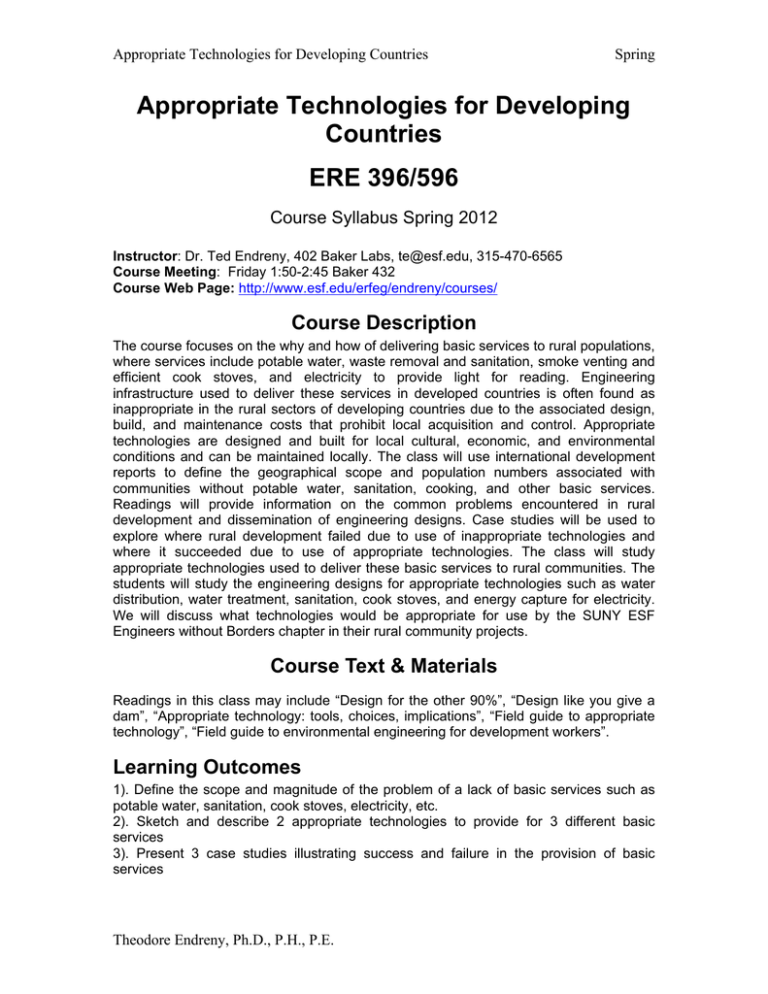
Appropriate Technologies for Developing Countries Spring Appropriate Technologies for Developing Countries ERE 396/596 Course Syllabus Spring 2012 Instructor: Dr. Ted Endreny, 402 Baker Labs, te@esf.edu, 315-470-6565 Course Meeting: Friday 1:50-2:45 Baker 432 Course Web Page: http://www.esf.edu/erfeg/endreny/courses/ Course Description The course focuses on the why and how of delivering basic services to rural populations, where services include potable water, waste removal and sanitation, smoke venting and efficient cook stoves, and electricity to provide light for reading. Engineering infrastructure used to deliver these services in developed countries is often found as inappropriate in the rural sectors of developing countries due to the associated design, build, and maintenance costs that prohibit local acquisition and control. Appropriate technologies are designed and built for local cultural, economic, and environmental conditions and can be maintained locally. The class will use international development reports to define the geographical scope and population numbers associated with communities without potable water, sanitation, cooking, and other basic services. Readings will provide information on the common problems encountered in rural development and dissemination of engineering designs. Case studies will be used to explore where rural development failed due to use of inappropriate technologies and where it succeeded due to use of appropriate technologies. The class will study appropriate technologies used to deliver these basic services to rural communities. The students will study the engineering designs for appropriate technologies such as water distribution, water treatment, sanitation, cook stoves, and energy capture for electricity. We will discuss what technologies would be appropriate for use by the SUNY ESF Engineers without Borders chapter in their rural community projects. Course Text & Materials Readings in this class may include “Design for the other 90%”, “Design like you give a dam”, “Appropriate technology: tools, choices, implications”, “Field guide to appropriate technology”, “Field guide to environmental engineering for development workers”. Learning Outcomes 1). Define the scope and magnitude of the problem of a lack of basic services such as potable water, sanitation, cook stoves, electricity, etc. 2). Sketch and describe 2 appropriate technologies to provide for 3 different basic services 3). Present 3 case studies illustrating success and failure in the provision of basic services Theodore Endreny, Ph.D., P.H., P.E.
